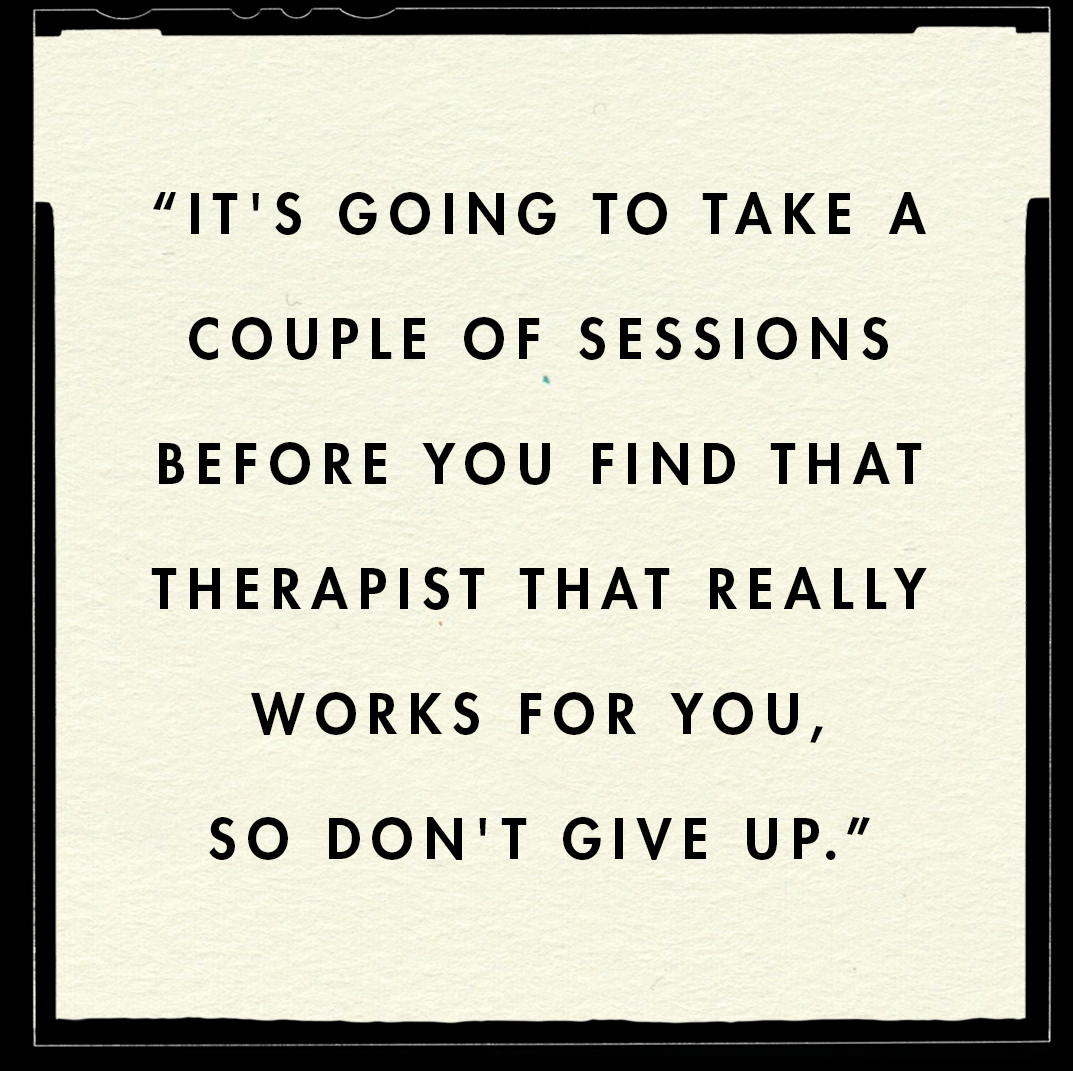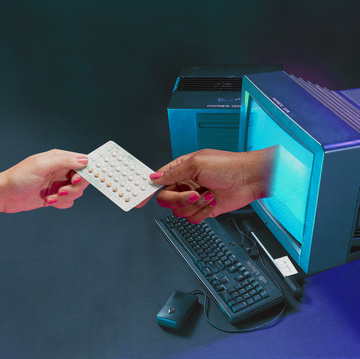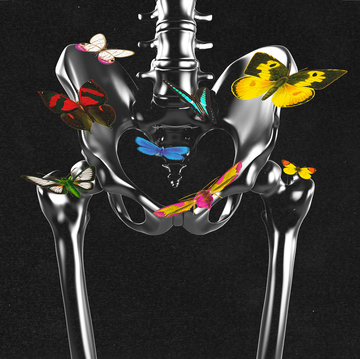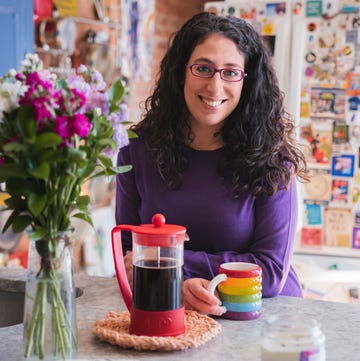Yeah, um, as we’ve discussed, the U.S. mental health care system is not great (to put it v politely), but now that we’ve gotten that out of the way, let’s discuss how to help yourself and your friends and fam within the current system.
It’s easy to put off focusing on your mental health when you’re not feeling so bad—you might be thinking: Isn’t everybody feeling stressed out and anxious these days?—but it’s so much harder to help yourself feel better once things get worse. Be proactive about it now.
Mental Health America, which runs a campaign called B4Stage4, put it this way on its site: “When [people] first begin to experience symptoms such as loss of sleep, feeling tired for no reason, feeling low, feeling anxious, or hearing voices, we should act. These early symptoms might not ever become serious. Like a cough, they often go away on their own, and are nothing to fear. But when they do not go away, it typically takes 10 years from the time they first appear until someone gets a correct diagnosis and proper treatment.”
Here are some helpful hacks to navigate America’s flawed mental health care system:
1. Get the logistical drama out of the way first.
Take a moment to find a therapist you feel good about, which—spoiler alert—will probs take longer than you imagine, says Alyssa Petersel, LMSW, founder and CEO of MyWellbeing, a site that helps New Yorkers find their therapist match: “Conservatively overestimate how hard you think it will be and how much time it will take.” If you’re in the New York City area, MyWellbeing offers a free questionnaire to match you with three potential therapists. If you’re elsewhere, you could read through bios of therapists in your city or zip on Psychology Today, and then cross-reference to see if they’re covered by your insurance.
Sometimes, even if a provider is out of network, an insurance company will still cover a portion of your fee, says Pooja Lakshmin, MD, a clinical assistant professor in the department of psychiatry and behavioral sciences at the George Washington University School of Medicine and Health Sciences and founder of Gemma, a digital education platform for women’s mental health. She recommends asking providers you’re considering for the CPT code, or current procedural terminology code, which describes any medical procedure performed by a health care provider, that they’d use for the initial session and follow-up session. Then call your insurance company to check on how much they’ll reimburse for that code.
Another option to keep costs down is to call local medical and psychology schools to see if they have residents who provide therapy at a lower cost, says Dr. Lakshmin.
2. Consider applying to get benefits from a therapy charity.
And if you’re a Black woman who could use some financial help with therapy, fill out the super-easy application for the Loveland Therapy Fund, which has partnerships with Therapy for Black Girls, National Queer and Trans Therapists of Color Network, Talkspace, and Open Path Collective.
3. Be patient with your mental health care journey.
Whichever route you take, know that you’re probably not going to love the first therapist you talk to, and that’s all good. Think of finding a therapist as dating, says Sharlene Kemler, CEO of the Loveland Foundation, which funds mental health care for Black women and girls through partnerships with Therapy for Black Girls, National Queer and Trans Therapists of Color Network, Talkspace, and Open Path Collective: “It’s going to take a couple of sessions before you find that therapist that really works for you, so don’t give up.”
And a reminder: If you’re feeling overwhelmed and in crisis, please, please reach out for help. You can reach the National Suicide Prevention Lifeline at 800-273-8255 (or chat with them here), and you can get ahold of the Disaster Distress Helpline at 800-985-5990 or by texting “TalkWithUs” to 66746.
4. Fill your feeds with self-care vibes.
Social media can be super draining and obviously doesn’t replace seeking out an actual therapist, but there are some accounts out there that can be a good reminder to breathe and love on yourself while you scroll through everyone else’s life updates. Four that Dr. Lakshmin recommends are @TherapyForBlackGirls, @FreudAndFashion, @DrewRamseyMD, and @NotesFromYourTherapist, and you can follow Dr. Lakshmin too @WomensMentalHealthDoc. Just think of it as one more chance to check in with yourself throughout the day, which we could all definitely use right now.
5. Check in on your friends and family.
Got your own oxygen mask on? Cool. “If you yourself feel that your mental health is stable or you’re in a proactive place, check in with loved ones and say, ‘How are you feeling today? How is your mental health today?’” recommends Petersel. “And if someone’s like, ‘I’m fine, I’m good,’ ask a second time in slightly different phrasing to really get an honest answer, something more than ‘good’ or ‘well.’” If it turns out that that person isn’t doing so hot, you could volunteer to help them out with the therapist-finding process above. Because as we’ve already established, finding a good therapist—but especially when your mental health isn’t fab—is not remotely easy.













